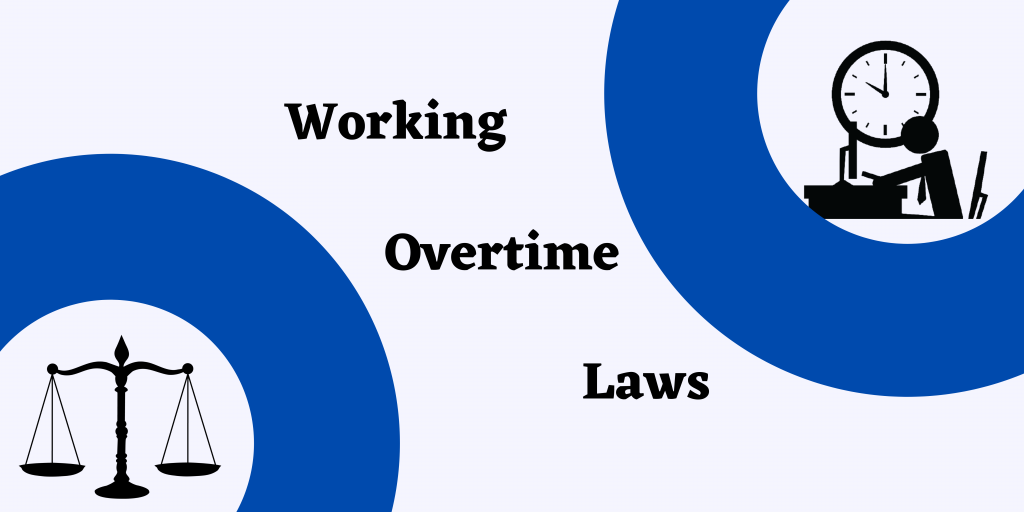As a 9 to 5 employee, how many times did you find yourself working overtime? Well, the answer is pretty simple. A LOT!
Am I correct?
Got stuck with the overtime work schedule in your workplace? Then do give a read to this article. We will uncover some of the reasons when working overtime is worth it and when it is not. In addition to this, we will discuss the financial aspects of overtime work and laws concerning it.
So what are we waiting for? Let us begin the surge of overtime work in the present world.
Know Why You Are Working Overtime
When you do remote work, it pretty much does not matter, even if you stretched some of your working hours. Not many will agree because who likes working overtime and bashing their heads only to pull off some strings? No one!
Whereas, in site work, working overtime is a bigger deal! Obviously, because your hours are not flexible, and there is an actual work-life balance crisis you are about to deal with.
Although, it is a lot easier to justify the act of working overtime when you know the reasons to do so. When you have the right reasons, working too much overtime does not seem like a bad idea. For example, you are an entrepreneur who aspires to beat the competition within a short period. In that case, I would say You go, girl!
Well! It was one example of justified working overtime. But what about people who have no idea what they are going to accomplish with it? I hope the following questions in this article sort out their confusion regarding it.
Ask yourself how many times you had to work overtime and why.
I know it is overwhelming to do overtime, keeping aside all your personal time. But, when it has occurred more than once to you, it is a matter of analysis.
Several people who have just started their careers might relate to this more. Many startups and agencies, loads of work but fewer employees. They tend to develop such situations in their workplace, where an intern has to cover most of their work in the name of learning new things.
Well! Reasons for overtime work are different for everyone. Some people really have to do it, and some are pushed towards it. However, it gets ugly for the firm or the department if the recurring overtime situations are not dealt with quickly. Thus, it is important for employers to have in place a proper overtime management plan to ease up the workload even for interns.
How does your superior treat you all together in the workplace?
Many types of situations emerge in the workplace, which is hard to deal with. Especially when you are new to the firm and at initial positions, there is not much you can do to make things better for you as per your work.
Many aspiring professionals get stuck in situations when they have to work overtime just because of management failures. I happen to know some of them who got recruited in a particular agency as an intern and are responsible for doing piles of work. But that is not the bad part! They have not even got their stipend for months, not even an internship certificate!
Working overtime without pay!
It is scary! In such situations, it is hard to deduce whose fault it is. If the condition persists, it can backfire on the company also. Well! Most businesses and organizations know that. And hence, they follow a code to manage work and overtime schedules in their workplace.
So! It is crucial for you to know the workload management modules of the firm to avoid getting stuck in compromised overtime situations.
What are you learning with it? Any skills you mastered?
Well! This question is for beginners and interns. Life seems to throw problems at us so that we can learn to deal with them. Similarly, the workplace! No one learns to deal with work pressure and deadlines by being in the comfort zone of fixed hours and no overtime.
At the least, this is what you are going to learn by being in such situations. Well, I am also not a fan of working overtime. But I can assure you, overtime pressure handling is a skill that can get you shortlisted in future interviews.
What are your company regulations to deal with last-minute client work?
Have you observed the company protocols for mandatory overtime? Well! You are lucky if your company has a protocol to deal with such situations. Many firms do not even bother to include this in their employee management modules.
So! What to do if your company does not have such regulations? There are a few things you can do to make things better for you.
First, talk to your superior regarding your situation and convince them to assist during urgent last-minute work.
Secondly, ask them to compensate you for your overtime. I understand it is embarrassing and difficult to do, but there is no other option.
Do you find yourself giving at least one legitimate reason to work overtime?
It is the most crucial part of working overtime. What are you getting at it? Is it an increased salary, upcoming promotion, or skills and professional growth? Continue doing it as long as you get appropriate payback for your hard work.
Talking about payback, it can be materialistic or not. What you prefer depends on you.
How productive are you during your company’s official working hours?
In the upsurge of remote work in the covid-19 pandemic, most employees find it hard to keep up with their productivity during working hours. And the companies did not fail to notice it.
For some employees, it is challenging to cover assigned work within the official working duration. Because flexible working hours are not official in every firm, hence such cases practically invite overtime work.
Besides, getting assistance from employee monitoring software to govern the remote employees seems like a fruitful idea. For example, with EmpMonitor, you can do more than just monitor your remote employees.
This software helps firms get a hold of employee activity and productivity reports. Along with this, it manages its website exposure. Most importantly, EmpMonitor helps you to track and tackle insider data breach threats.
So what are you waiting for? Get your employees the assistance of EmpMonitor, just with a click!
When Is Working Overtime Not Worth It Financially?
Several types of research have revealed the myths and facts of working overtime. And its relation to our average pay scale of one official hour. Many professionals believe that we earn less in an hour when we intend to work overtime.
According to one report of hrbusinesspreneur.com, the covid-19 pandemic has indeed boosted the productivity of each employee. But the average working hour of an employee is stretched to more than half an hour. However, it is not accurate! Many believe that employees tend to do overtime for more than an hour.
Since remote work includes prolonged exposure to the desktop screen, it might lead employees to eye injury if not taken care of. Well, things have opted to be this way only due to the pandemic situations.
However, site work is also not free from overtime problems. What you need to evaluate is when overtime work is costing you more than ROI.
Are you working overtime on salary?
First of all, go through the company overtime policy if you feel like this. If they have a system to compensate the employees for overtime, then it’s well and good! But if you find yourself working overtime without pay. Then it is optimal to cut short your workload and make it cost-effective for yourself.
Be aware! Out of every disadvantage of overtime working, your physical health is at the biggest risk. Plus, those extra hours and the tight workload are costing you mental health and work-life imbalance if you consider.
So, what do you think? Is working overtime worth it if your health is on the line? Well! I suppose you know the answer better. That is why it is advised not to work more than you need to.
What Are Your Working Overtime Laws?
Working overtime laws may vary depending on the demographic location and the country. However, most countries follow some set of protocols and cultures to deal with overtime working situations. For example, in Japan, if the employee gets sleepy during working hours, they see it as a sign of hard work.
Well! Apart from culture, working overtime laws also have their relevance in the workplace in some countries.
For example, employees are obligated to get paid for working more than 40 hours a week in federal states. Whereas, in Japan, there are laws that restrict the overtime of employees.
Talking about overtime limits, how many overtime hours can you work in India?
India has a law that limits the employees from overtime work illegalities. In India, the maximum limit of overtime working hours is 200 hours per year. It is approximately half of the Chinese maximum overtime work limit.
Under section 51 of the Factories act 1948, employees are not supposed to work more than 48 hours a week. It means, 8 hours a day for six weekdays. The excess work apart from these defined time limits comes under overtime hours in India.
Under section 59 of the same article, an employee can work for 9 hours a day but not more than that.
Although, in another Indian Law, Conditions of Employment Act 1966, an employee can work up to 10 hours a day. And 54 hours a week which includes overtime also.
There is employment law in India for children and women. The law includes restricting their employment between 07:00 PM to 06:00 AM IST. However, this law was amended and evolved to restrict their employment between 10:00 PM 05;00 AM IST during the 1948 era.
Well, further observations include the will of the employee to work overtime or not. Additionally, if female employees are comfortable working in the restricted period, they have the right to do what suits them best.
Final Words
As you can see, there are multiple conditions and legal boundaries of working overtime. So if you happen to work overtime, be aware of the laws and pros and cons of your choices.
The information shared in this article is not advice. But, the main agenda is making you aware of the existence of employee rights and things you can do to deal with some situations. Since laws keep changing and situations in the workplace are not the same for everyone.
Therefore it is advised to take this article as an extended idea of solutions and information regarding working overtime.
Read More:
TOP 10 WORKFORCE MANAGEMENT SOFTWARE 2022
HOW TO IDENTIFY BEST PC MONITORING TOOLS (PAID & FREE)
What Is Overtime Management And How To Reduce It?
Employee Contract: The Foundation Of A Strong Workplace













